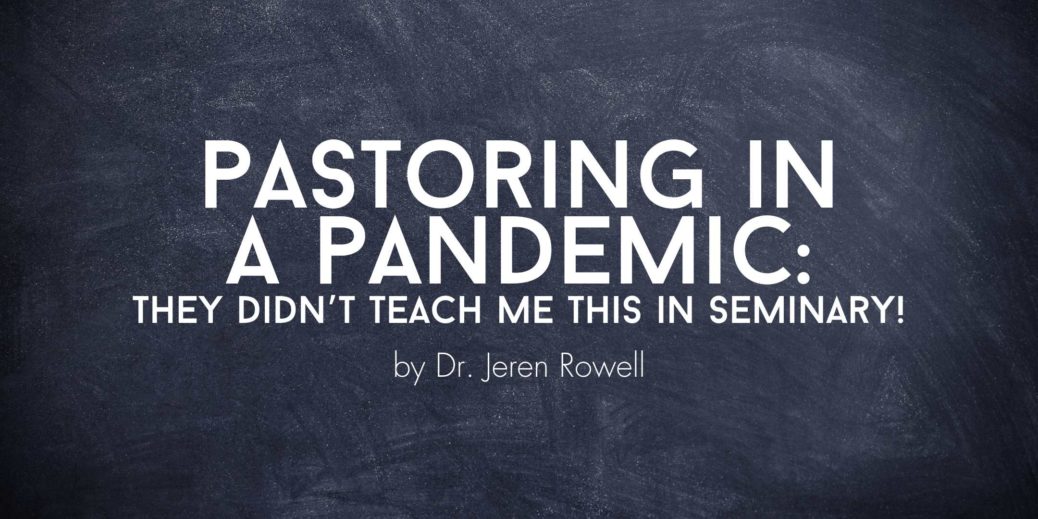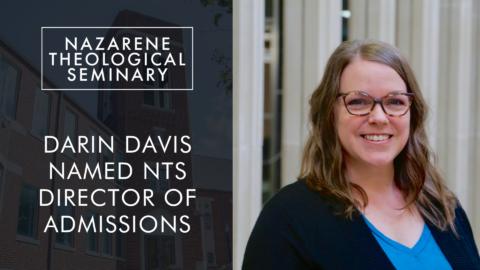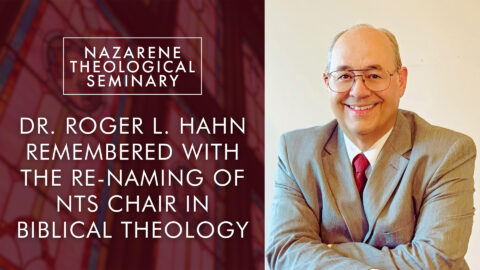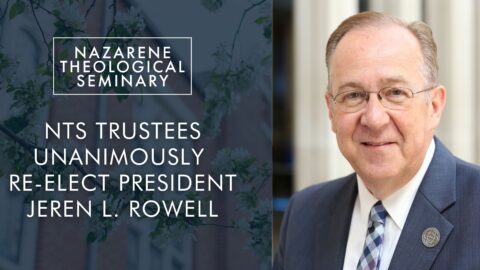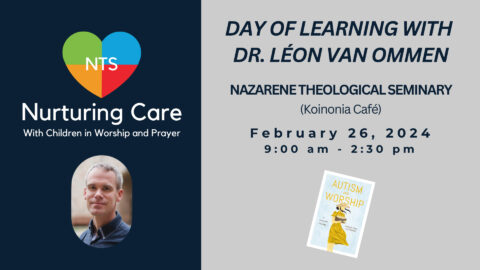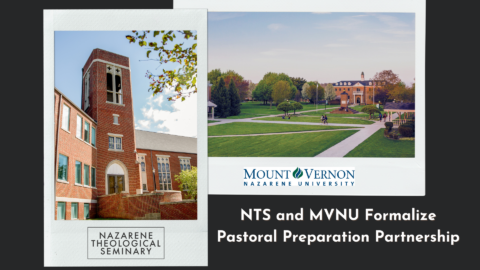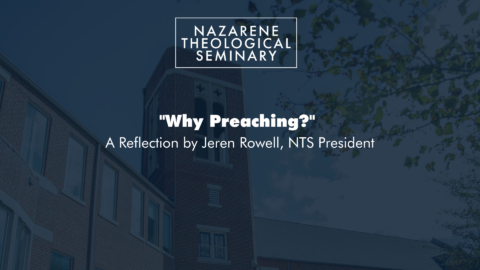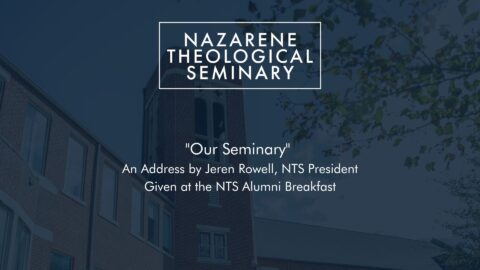April 1, 2020
 Leadership for the church in our current situation is stretching us all. Many pastors have noted that they do not feel especially prepared for the momentous decisions forced upon them by this pandemic. As one pastor noted with sarcasm, “I knew that the ‘Pastoring During a Public Health Pandemic’ class I took in seminary would come in handy.”
Leadership for the church in our current situation is stretching us all. Many pastors have noted that they do not feel especially prepared for the momentous decisions forced upon them by this pandemic. As one pastor noted with sarcasm, “I knew that the ‘Pastoring During a Public Health Pandemic’ class I took in seminary would come in handy.”
Right, I understand. Many of us throughout our ministries have thought or said something like this. “They sure didn’t teach me this in seminary,” is the common cry when we encounter the unexpected or perplexing.
On the one hand, it is true that not every challenge or every potential danger is named in the curriculum of seminary education. Nor are we offered an attendant set of sure-fire strategies for overcoming every challenge. On the other hand, when I hear the familiar, “They didn’t teach me this is seminary” refrain, there’s part of me that wants to challenge this. I want to say, “Actually, yes we did teach you this.”
For example, seminary does teach us how the church responds during a pandemic health crisis. The course is History of Christianity. There, we learn how Christians in the second century moved toward those who were sickened by the Antonine plague. In the third century, Dionysius wrote of Christians who “heedless of danger … took charge of the sick, attending to their every need.” The church grew significantly during this time as God’s people bore witness to the hope of the gospel. Many have quoted Martin Luther’s pastoral advice to a church wavering fearfully during bubonic plague. He wrote, “The plague does not dissolve our duties: It turns them to crosses.”
We could go on and on with examples through Christian history. But even more than the particulars of how Christians have behaved during crisis, the work of seminary is to form ministers in the deep things of God. Seminary education is about so much more than delivery of content in Bible, history, theology, and practice of ministry. Seminary is about being shaped in God’s wisdom in ways that enable ministers of the gospel to rise above the anxieties and fears that seem to drive much of what passes for leadership these days.
The most important work that happens in seminary preparation is the development of an abiding awareness of the work of Spirit. I mean this in the way that Jesus spoke of it when he told his disciples that the Spirit would “guide you into all the truth” (Jn. 16:13). Some may be surprised to learn just how much this idea is interwoven into the conversations and prayer that is at the heart of seminary education.
This kind of seminary-formed wisdom is about “learning by heart,” as Gordon Lathrop puts it, what it means to be a “symbol among symbols.” In other words, what does it mean to so embody the gospel in particular communities, that no matter what happens in the world, our lives bear witness to a steadfast hope in Christ who is “making all things new” (Rev. 21:5).
When pastors are formed not only in terms of access to the content of the Christian faith but also in terms of personal holiness, these rich gifts combine to provide the skill and the character that is needed to navigate the most perplexing pastoral issues.
This is why I am saying, “Yes, we did teach you how to do this in seminary.” There may not have been a particular course on leading the church through a global health pandemic, but the entire curriculum and experience was all about planting deep within us the necessary resources to guide the people of God in times of crisis with words and actions of wisdom, peace, and gospel hope.
And this is why I believe that seminary education is critical to building a sufficient foundation for faithful and effective ministry. I see some pastors who attempt to lead entirely from the pragmatic concerns of what will get up a crowd next week. This kind of leadership can be exciting for people when it would seem that we are part of something the world wants. Too often, however, the ever-elusive thirst for “next, best, greatest” cannot be quenched and leaves the people, leaders included, parched and disappointed.
The spiritual leadership for which the church and the world longs these days, was described beautifully by Dr. Tom Long who once said, “People are looking for someone who in the midst of all the noise can stand calmly under the authority of the Spirit and tell the truth about something.” This is the posture of pastoral leadership that is formed in the work of learning the rich resources of Christian faith and then shepherding the church out of a life of prayer, no matter what crisis the moment may bring.
So, I understand the heart of what people are saying when they declare, “They didn’t teach me this in seminary!” I really do understand the pressures and uncertainties of pastoral crises. But I would invite us to realize that the resources for leading in uncertain times have been shaped into us through the gifts of education, discipleship, and spiritual formation.
May we embrace the pastoral task of moving toward the danger in order to bring patience and peace to a people who so quickly become “harassed and helpless” (Matt. 9:36). And let us do so with confidence, not borne of our own wisdom or ability, but based in God’s wisdom that is given to us as a gift of the Spirit who is always working to bring our future to us.
Dr. Jeren Rowell
President and Professor of Pastoral Ministry

